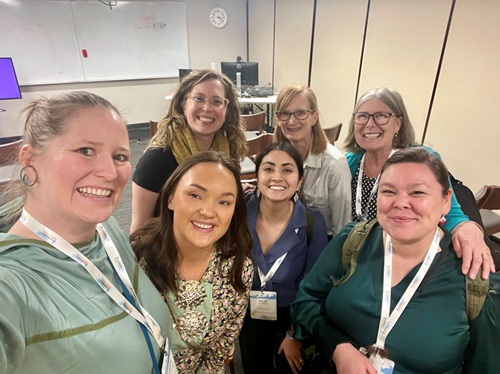In March, I attended the Fourth International Conference on Arctic Research Planning (ICARP IV), funded by the International Arctic Science Committee (IASC). This conference is a key part of IASC’s multi-year planning process, engaging Arctic researchers, policymakers, and knowledge holders to address Arctic science, knowledge gaps, and research priorities. You can read more about the process on IASC website.
As a representative of UArctic in the Research Priority Team on Co-Production and Indigenous-led methodologies, I reported on how presentation applied these approaches in the sessions I attended. There were two impactful sessions. In the first session, Indigenous researchers and knowledge holders shared how climate change impacts their home communities’ wellbeing, and how governmental structure restrain their ability to adapt to climate change. The other session was a panel of Indigenous researchers and knowledge holders, who emphasized the integral role of art in Indigenous culture and knowing. They argued that art should not be separated from science.
My motivation for getting involved in the ICARP IV process was the fact that, based on my observations, public health is barely discussed in these forums. Therefore, I organized a session on Circumpolar Maternal and Child Health (CMCH). This session brought together researchers and practitioners for presentations on knowledge dissemination, accessing services, health and wellness systems, and nutrition. Due to high engagement, we extended our discussions to another session.
We explored strengths and challenges across Arctic regions, considering how solutions might be adapted to different healthcare systems. There is a need for systematic research into Indigenous birthing traditions and comparative studies to identify best practices for maternal healthcare and well-being.
With funding from NAPA – The Nordic Institute in Greenland, I facilitated the participation of a Greenlandic midwife, a Sámi midwife, a Métis birthworker, a PhD student from Yellowknife, and two student assistants from the Centre for Public Health in Greenland.'

